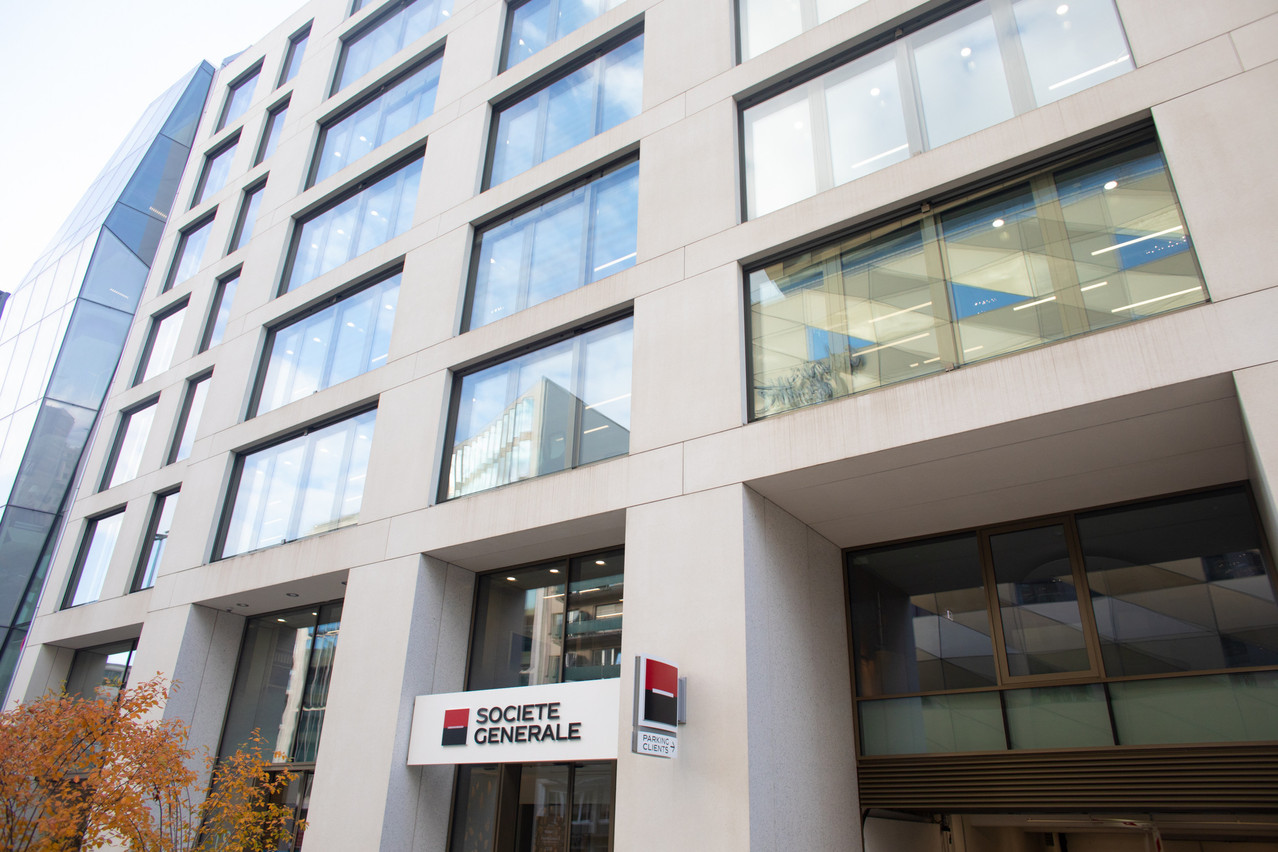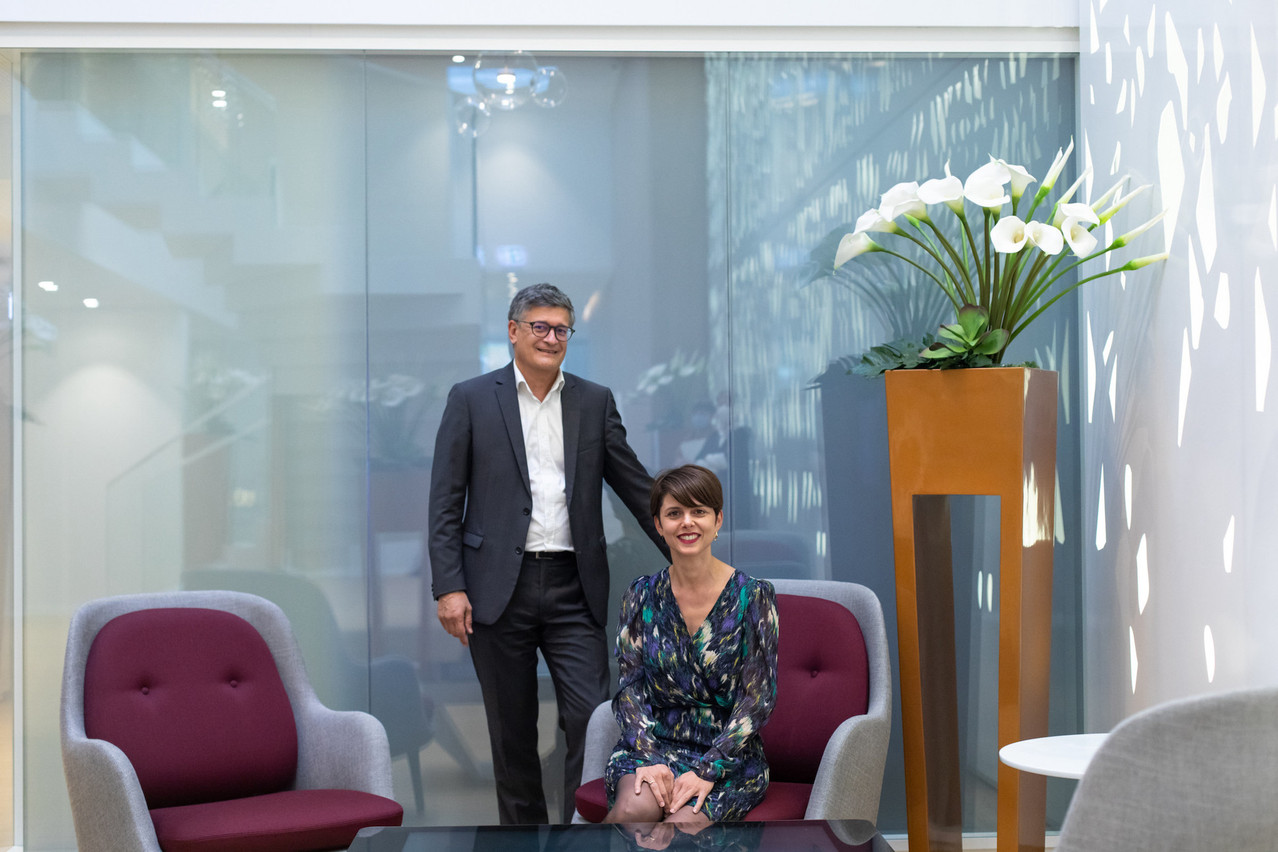“Teleworking is part of the group's culture, aiming to better reconcile professional and personal life. There was a real demand from staff on what telework would become after covid,” said the bank's current human resources director, Philippe Perain. The new telework agreement will take effect as soon as the temporary measures related to the pandemic are over on 1 January 2022. From then on, almost all the company's employees residing in Luxembourg will be able to benefit from two days of teleworking per week and one day for non-French border workers.
“We have learnt from this exceptional period, and have taken into account the needs of our employees. This is a real acceleration for us.” Teleworking is not a legal entitlement, but the employer’s decision. The term “beneficiaries” does not necessarily mean that they are actually teleworking, but that they have the possibility to do so.
With this agreement, Société Générale Luxembourg is anticipating possible (and much hoped for) new tax provisions for French border workers as negotiations are underway. Last week, a manifesto signed by 19 elected representatives of the Grand Est region to obtain 47 days of teleworking per year instead of the current 29 was sent to the French prime minister. This could allow the 100,000 French residents who cross the border every day to telework one day a week without any change in their tax regime.
As a reminder, Belgium has authorised the increase of the telework period without tax change to 34 days from 1 January on. Prior to the pandemic, employees coming from Belgium were allowed to work from home 24 days a year.
CovidCheck partially deployed
Within the regulatory framework and in consultation with occupational health, the bank already uses CovidCheck internally, “in a limited way for certain meetings and for face-to-face communication events,” said Perain. The amended law on measures to combat the pandemic, which will be adopted next week, will allow, if the terms of the draft are maintained, “a generalisation of this system, which is already present within the company.”
“We will study the possibility in agreement with our social partners,” alongside all the questions this raises about the “exceptional" or "additional" telework arrangements not yet defined by the law for non-vaccinated employees. In addition to the already complex management of telework, there will be the hurdle of a possible non-compliant CovidCheck--a real headache for HR.
A complex implementation
Telework arrangements must be fairly predictable to organise the teams and activities. Leaving one’s quota untouched for six months and take 10 days of home office consecutively during the summer is out of question. For Belgians and Germans, the tax authorities now allow one day of telework per week. For the time being, only Luxembourg residents are allowed to work from home two days a week. Will they be able to take these two days of telework consecutively? “Yes, and we have provided for a carry-over of days not taken from one week to the next, subject to respecting a presence on site of two days per week,” said Perain.
We did not want to penalise those who have more favourable arrangements.
This means, exceptionally, three days of telework in a row for those who accumulate weekly days and days carried over. Some employees can also use their balance of excess teleworking days in the last quarter of the year, in an alternative way, as different tax conventions among bank employees allow. “We could have taken the lowest common denominator and applied one day every 15 days for everyone. However, we did not want to penalise those who have more favourable provisions,” said Perain. Société Générale points out that these days are carried out “under the responsibility of the employee,” so it is up to him or her to assess whether he or she wishes to go beyond what his or her tax treaty allows. The bank will issue certificates to justify the days spent teleworking.
50% of staff still teleworking
In March 2019, before the pandemic, 303 of the bank's 1,200 employees, or 23% of the workforce, were teleworking. One year later, on the eve of the crisis, 359 or 29.8% of the workforce were teleworking. During the crisis, the bank put in place a system that could be adapted and reversed as the health situation evolved, in close consultation with the ASTF (an organisation for occupational health in the service and financial sectors) and the staff delegation. “In addition to the technical feasibility, there was real support for managers in handling the change,” said Aurélie Ederlé, who will replace Perain as head of the bank's HR department on 1 November.

Société Générale employs 1,200 people in Luxembourg. (Photo: Matic Zorman/Maison Moderne)
“We offered them, among other things, yoga or relaxation sessions at a distance and in small groups, to promote well-being at work,” she said. Within two weeks, following the announcement of the lockdown, 100% of the staff was working from home. In October 2020 and October 2021, the volumes of staff teleworking are almost identical (around 50%). In 2021, the peak was reached in February with 73% of staff teleworking at the time of the second lockdown. “There were rotations every other week, to avoid isolating employees.” The new agreement provides for on-site presence to avoid this as well.
Pioneering bank
The bank is proud to point out that it was a pioneer in setting up teleworking in Luxembourg in 2017 “with the authorisation of the CSSF,” said Perain. This was before the tax thresholds for cross-border commuters were introduced. Officials had set the limit at one day per week or one day per fortnight, as they wished. In 2017, there were few models or procedures that could serve as an example in the banking sector. “Teleworking quickly became a real success. The feedback was of the win-win variety. From then on, the scheme quickly spread.”
At the time, the situation was still quite unprecedented and had to be formalised by an amendment to the employment contract on a voluntary basis and with the agreement of the manager. “This will not be the case for the new agreement, which allows telework by default for almost all employees.” Until now, certain regulated activities were not eligible, such as securities, private banking and front-office staff, but here again, Perain says that the system has been made more flexible.
The bank will move to a new headquarters in 2023. One third of the staff will move to the Arsenal building, designed to accommodate 700 people on 9,700m2, while the other two thirds will move to Belval, in the Icon building. “The two new buildings have been specifically designed with a flexible working environment in mind,” said Laetitia Carrière, head of real estate and general resources, when the foundation stone was laid. This was planned so that employees could switch between their home and offices smoothly.
This story was first published in French on Paperjam. It has been translated and edited for Delano.

